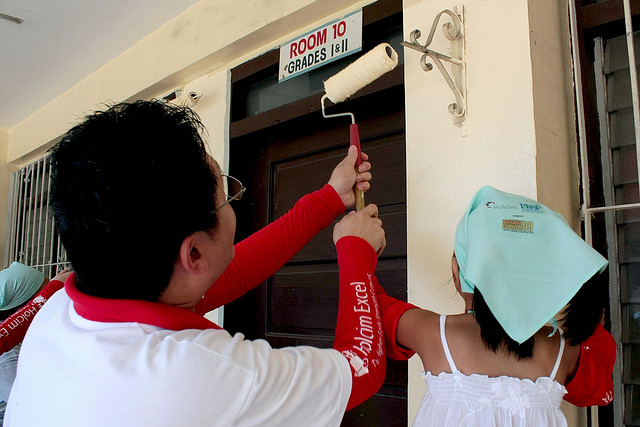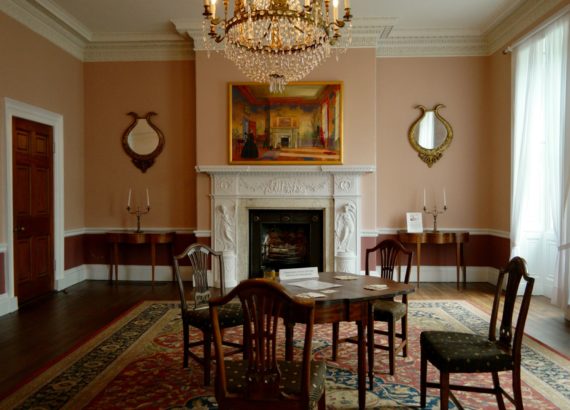Change in Class Opening to Globalize Philippine Education
Opening of classes in the Philippines has always been slated on June as far as most of us can remember. The school calendar year from June to March has been the subject of much talk since time immemorial primarily because the typhoon season runs smack in the middle of the school year, causing much inconvenience and cancellation of classes. There is however another reason why some universities are favoring a September to June school year and it is related to the efforts in globalizing the Philippine educational system.
International School Calendar
There has been pressure for some time for the Philippines to favor a change in class opening from June to September. The Philippines is the only remaining member of the Association of Southeast Asian Nations (ASEAN) having an academic calendar of June-March. The expected ASEAN integration in 2015 is sought to internationalize Philippine school campuses as school calendars get synchronized with that of other member nations in the region. Add to this the fact that most foreign school campuses open for classes during the months of August, September, or October.
So what do we Filipinos care about the school calendars of other countries? It would appear that these schedules have a very important bearing for Filipino students who would like to enroll in foreign colleges and universities as well as for foreign students who would want to study in Philippine schools and universities. As it stands now, these students will have to wait for another semester to enroll since they are too late for the scheduled opening of classes in foreign campuses. The move of several colleges and universities to seriously consider a change in class opening is related to the desire to adapt to the planned Asean Economic Community (AEC) slated to happen on 2015. AEC’s vision is to establish interdependence among its member-nations under a master plan that involves the mobility of students and faculty members in an established university network.
Latest Developments
The University of the Philippines (UP) recently announced that it will adopt the school calendar shift on a pilot basis. This will involve UP’s 7 constituent units including UP Manila, UP Los Banos, UP Baguio, UP Visayas, UP Mindanao, UP Cebu, and UP Open University. Under the new academic calendar, first semester will be from August to December while the second semester is scheduled from January to May. UP Diliman, the school’s flagship unit will not adopt this new calendar. Neither will the UP Integrated School (UPIS).
Ateneo de Manila University (ADMU) for its part, has announced that it will shift the academic year of its undergraduate and professional schools by schoolyear 2015 to start on the month of August. The University of Sto. Tomas is favoring a gradual shift by starting the next school year on the month of July, to be adjusted yearly. De La Salle University is proposing to amend its school calendar by school year 2015-2016. It proposes to schedule its first trimester from September to December, second trimester from January to April, and the third trimester from May to August. The Commission on Higher Education has aired its view that that the school calendar shift may not be suitable for all campuses.
Feared Disadvantages of Change in Class Opening
With the declared advantage mentioned above in a change in class opening, there are several disadvantages likewise seen by many such as:
1. There will be a long vacation for the new graduates from high school especially since there is no expected change in the grade school and high school calendar.
2. While there may be a possibility of reducing problems related to the typhoon season, there is a likewise a possibility that problems can arise from holding classes during the very hot months of summer.
3. There are serious concerns about the required changes that will need to be implemented in relation to the change in class opening such as schedules of licensure exams.
4. Holding classes during summer time will result to conflict in schedules with traditional events such as fiestas which are acknowledged bonding opportunities for families.
5. Many fear that this shift comes too close to the implementation of the K-12 education system which has yet to manifest its full effect.
My Say
I have always been open to positive changes especially in the educational system especially because of the big role of education in ensuring quality human life. I have no objection to colleges and universities opting to shift their school calendars to synchronize with foreign counterparts. That is how globalization works. One cannot globalize without adjusting. The government and educational institutions involved must however fill in the gaps that are expected to result from the transition.
However, I do recognize the fears of many about the long break in the transition from high school to college and all the rest of the other concerns. Personally, I am not in favor of extending this calendar shift to include basic and secondary education, if it ever comes to that. My children fare badly in very hot weather so it can be a very personal but big concern for me as a parent. Truth be told, I am still fighting my personal disapproval of the K-12 system. So let’s wait and see…














Setiel Duran
I do believe that the K to 12 Program of the Department of Education has some vague and unclear guidelines regarding the senior high school. The additional 2 years according to them would help the competence and skills needed by the students to face the world of works and surviving especially in a third-world country like ours. However they did not give clear directions of the future set up (other stakeholders concerns wit the changes) that would takes place starting 2016. They give us only the educational set-up but how about the waiting economy (markets, jobs and business, corporations, globalization etc) and the rest of of the graduates of 2016. What then? What awaits them? K to 12 is good in theory but let us not set aside the condition of the poor who cannot afford the additional 2 years in high school. The government should provide a strong support in this matter. Even in some secondary (public), insufficiency of modules regarding this K to 12 is still observed. The idea of globalization and international recognition and integration is good, but let us see first the reasons why quality of education in public school degenerates; poor quality of teachers, lack of books, and mismanagement of administrators.
John Paul Barnedo
I’m not in favor of changing the opening of classes in the Philippines, because we are all get used to this month (June) where we return to school even if there is a typhoon we always get through it. By shifting the school calendar it will extend the classes until summer, My concern is, the weather will be hot that the students cannot concentrate well in their studies. so that is why I am not in favor of calendar shift in opening of classes.
John Paul Barnedo
Contributor, Ourhappyschool